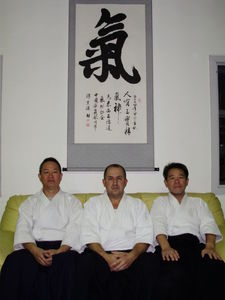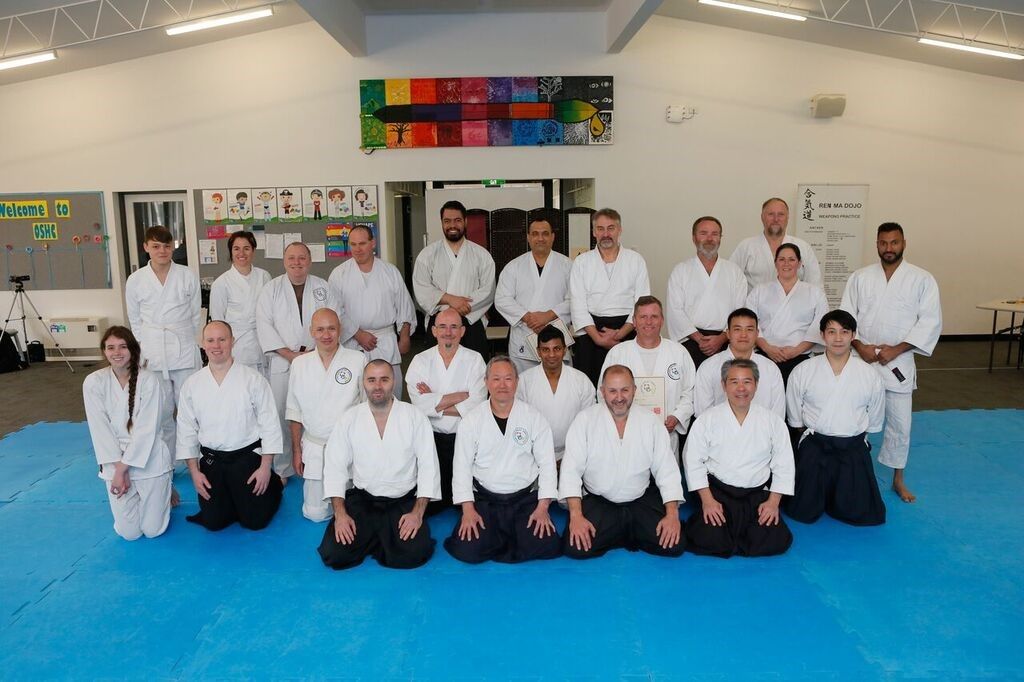Welcome to Eastern Aikido -
History of Aikido
Aikido's founder,
Morihei Ueshiba, was born in Japan on December 14, 1883. As a boy, he often saw local thugs beat up his father for political reasons. He set out to make himself strong so that he could take revenge. He devoted himself to hard physical conditioning and eventually to the practice of martial arts, receiving certificates of mastery in several styles of jujitsu, fencing, and spear fighting.
In spite of his impressive physical and martial capabilities, however, he felt very dissatisfied. He began delving into religions in hopes of finding a deeper significance to life, all the while continuing to pursue his studies of budo, or the martial arts. By combining his martial training with his religious and political ideologies, he created the modern martial art of Aikido. Ueshiba decided on the name "Aikido" in 1942 (before that he called his martial art "aikibudo" and "aikinomichi").
Selimi Sensei, 6th Dan - Demonstrating sword cut
On the technical side, Aikido is rooted in several styles of jujitsu (from which modern judo is also derived), in particular daitoryu-(aiki) jujitsu, as well as sword and spear fighting arts. Oversimplifying somewhat, we may say that Aikido takes the joint locks and throws from jujitsu and combines them with the body movements of sword and spear fighting. However, we must also realize that many Aikido techniques are the result of Master Ueshiba's own innovation.
On the religious side, Ueshiba was a devotee of one of Japan's so-called "new religions," Omotokyo. Omotokyo was (and is) part neo-shintoism, and part socio-political idealism. One goal of Omotokyo has been the unification of all humanity in a single "heavenly kingdom on earth" where all religions would be united under the banner of Omotokyo. It is impossible sufficiently to understand many of
O Sensei's writings and sayings without keeping the influence of Omotokyo firmly in mind.
| 1960's - O-Sensei performing Tai No Henko | Morihei Ueshiba (O-Sensei )(1883-1969) & Morihiro Saito (1928-2002) |




